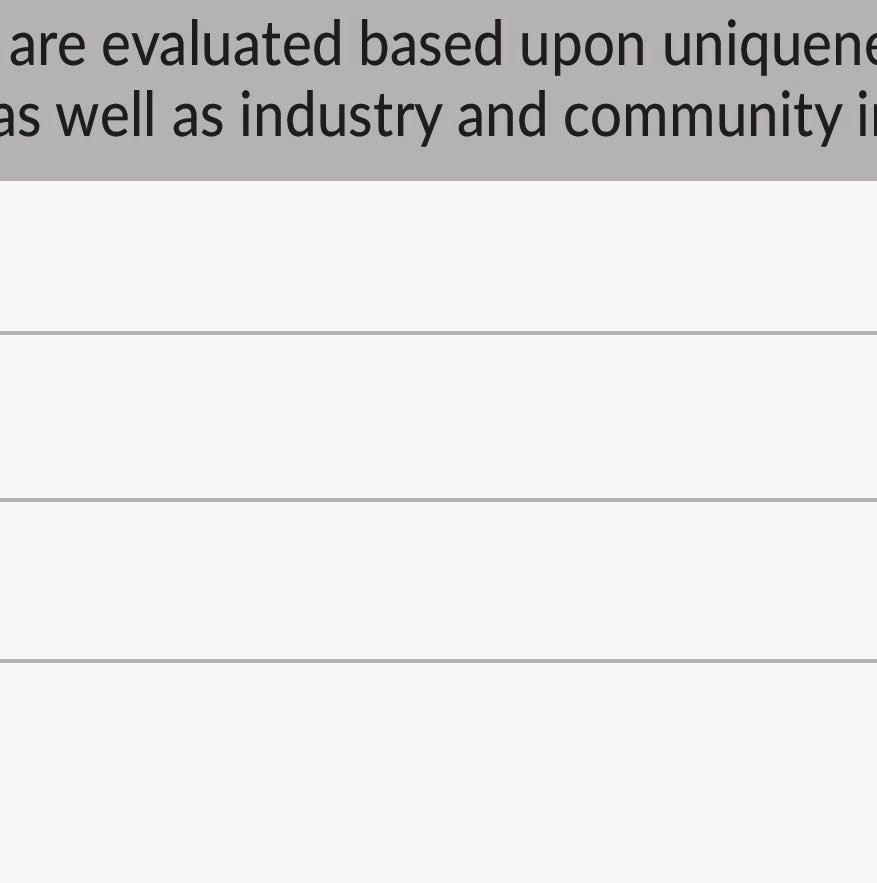












Although sellers’ individual preferences may differ, they often share a set of expectations and needs when it comes to what they seek in their real estate agents. Here are the top six things sellers often want:
Sellers want their agents to have a thorough understanding of the local real estate market. This includes providing an accurate and realistic pricing strategy for the property based on current market conditions, comparable sales, and other relevant factors.
Sellers appreciate real estate agents who maintain open and transparent communication throughout the entire selling process. This includes providing regular updates on the status of the property, relaying feedback from potential buyers, and being responsive to the seller’s inquiries.
Sellers expect their real estate agents to be skilled negotiators who can secure the best possible deal on their behalf. This includes negotiating the sale price, handling counteroffers, and navigating any potential challenges that may arise during the negotiation process.
A strong online and offline marketing strategy is crucial for selling a property quickly and at a desirable price. Sellers value agents
who can effectively market their homes through various channels, such as online listings, social media, professional photography, and traditional advertising.
Sellers seek agents who offer strategic guidance throughout the selling process. This includes advising on the best times to list the property, suggesting improvements or staging techniques to enhance the property’s appeal, and providing insights on market trends that could impact the sale. They value an agent’s ability to navigate the complexities of the real estate market, offering support and expert advice to make informed decisions and ultimately achieve a successful sale.
Trust is a key factor in the real estate relationship. Sellers want an agent who is professional, trustworthy, and acts in their best interests. This includes maintaining confidentiality, adhering to ethical standards, and demonstrating a commitment to providing excellent service.
Remember, individual preferences can vary, so it’s essential for real estate agents to communicate openly with their clients to understand their specific needs and expectations. Building a strong, trusting relationship is crucial for a successful real estate transaction.

►Carla Cross, CRB, MA
You can predict if you’ll be successful in real estate. It’s not what you think, either.
Grab the best business start-up plan you can find and start the plan. Find someone to coach you to the plan.
From my survey of hundreds of agents under three months in the business, I found that more than 1/2 of them expected a sale the first month of the business. What does that mean? When do they have to start looking for leads? That first week in the business! Yet, how many new agents start lead generating even in the first month? How long have you been in the business?
When did you start lead generating on purpose? Or, have you started? That’s why my book, Up and Running in 30 Days, now in its 6th edition, has you lead generating in week one. It’s your assurance plan you will get a sale fast and will stay in the business.
Inevitably, there is a new agent who has an Aunt Martha in his back pocket. That is, Aunt Martha wants to buy a home, and has told nephew Tommy she’ll wait until he gets his license to purchase from him. Ca-ching. Dumb luck. Tommy concludes that’s how the business goes. You just wait for someone to find you and
sell them a home. We know that’s not the norm, though.
Unfortunately, Tommy’s going to wait a long time for that next transaction! The ‘dumb luck’ approach to the business results in low results. Since the ‘dumb luck’ agent isn’t doing a business start-up plan, we have no way of predicting results, because we can’t measure businessproducing activities. We can only measure other ‘dumb luck’ agent incomes. That’s way too late to actively coach–or to terminate with purpose.
Your Manager Could be a ‘Dumb Luck’ Manager–Pardon the Expression…
Dumb luck managers just look at results; sales and listings sold. So, they are not aware that agents may be failing for months. If new agents expect to make a sale in month one, how many months do you think it takes for them to get dis enheartened? 2-3? Not long. So, once new agents are mentally and emotionally out of the business, they will resist any help from managers. They’ve decided they can’t make it in the business. They’ll stay awhile, though, for ‘dumb luck’ transactions.

Are you working a specific, prioritized lead generating plan? Is it made up of prioritized lead generating activities? Does it have ratios of activities to results, so the new agent knows whether he is on track to his goals?
Here are my activity ratios from Up and Running that will result in 8-12 transactions the first year in the business:
• 20 contacts to get one buyer or seller lead
• 8 times of putting people in the car to sell someone a home
• 3 listing appointments to gain one marketable listing
https://carla-cross.com
• 80% of listings sell
• 80% of transactions close
What are the ratios in your office? Do you know? Do you know the work it takes to consistently generate the income you want to generate? Or, are you counting on ‘dumb luck’?
Grab the best business start-up plan you can find and start the plan. Find someone to coach you to the plan. Analyze your numbers frequently. You’ll stay on track AND assure your success.
In the real estate business for over 3 decades, Carla Cross is an international speaker, trainer, and coach for real estate. She specializes in career development, business planning, leadership, and instructor development. She’s won numerous sales and leadership awards in each area, including being named as a National Realtor Educator of the Year. A popular international speaker, Carla has spoken on leadership and training topics for 16 years at national Realtor conventions.
Author of eight books on real estate sales, her wildly popular book, Up and Running in 30 Days, is used by hundreds of thousands of new agents internationally to start their careers right.


After serving in the United States Air Force, Heather Winters Stout returned to her roots in Upstate South Carolina. Driven by a desire to find more meaningful work, she left the corporate world and took a leap of faith into real estate. Her path wasn’t instant or easy—but once she committed to the career, she knew she had found her calling.
Today, Heather helps people navigate one of life’s most important decisions: buying or selling a home. For her, it’s not about sales—it’s about service, education, and connection.
Heather’s military background instilled in her a deep sense of discipline and focus,
but it was her compassion that led her to specialize in helping first-time homebuyers and families who feel uncertain about the process. As someone who once faced those same fears herself, Heather makes it a priority to bridge the knowledge gap and ensure her clients feel confident and supported from start to finish. Her calm, clear communication style and attention to detail have become a signature of her work—and
clients quickly come to see her as both a guide and an advocate.
A proud native of the region, Heather brings a true insider’s perspective to her work. “I grew up here, so I know how special this place is,” she says. From the Blue Ridge Mountains to Lake Jocassee, the area’s natural beauty is part of what draws people in—but it’s the strong sense of community
Top Agent Heather Winters Stout specializes in helping first-time homebuyers and makes it a priority to bridge the knowledge gap and ensure her clients feel confident and supported from start to finish.


A native of the region, Heather uses her local knowledge to go beyond surface-level real estate advice, helping buyers find not just a house, but the right neighborhood, the right lifestyle, and a place to truly call home.
that keeps them here. Heather uses her local knowledge to go beyond surface-level real estate advice, helping buyers find not just a house, but the right neighborhood, the right lifestyle, and a place to truly call home.
When it comes to marketing, Heather blends high-tech tools with personal touches. Her listings are showcased through professional
photography, videos, social media, landing pages, and even billboards. She’s just as thoughtful with her personal brand— using client stories, local partnerships, and consistent outreach to stay top-ofmind in a competitive market. “For me, real estate is about showing up with intention,” she says. “It’s about relationships, not transactions.”


Heather doesn’t disappear after the keys are handed over. She maintains close ties with clients through mailers, milestone notes, events, and ongoing homeowner support. Every detail is tracked in her CRM to ensure no one feels forgotten. “People want to know they still matter after the sale,” she explains. “That’s how you build trust—and that’s how you build a business that lasts.”

Outside of real estate, Heather remains deeply involved in her community. From supporting fellow veterans to volunteering with local nonprofits like Habitat for Humanity and United Way, she sees service as a lifelong mission. Whether helping clients navigate a purchase or helping neighbors in need, Heather’s work is driven by purpose—and that’s what makes her stand out.

Steering clear of these common home selling errors is essential for a seamless and effective transaction. Here are some top home-selling mistakes to avoid:
An experienced and compatible real estate agent is crucial. Select an agent with a strong performance history and knowledge of your local market.
Avoid setting an unrealistic asking price. Analyze the local market and similar properties to find a competitive and fair price.
Make necessary repairs and improvements to attract buyers. Addressing issues beforehand can make your home more appealing.
Proper staging is key. Declutter, depersonalize, and arrange furniture to highlight your home’s features.
First impressions are vital. Enhance your home’s exterior with maintenance, landscaping, and possibly a new paint job.
Expand beyond traditional marketing. Utilize online platforms and various channels to increase your home’s visibility.
Ensure your listing has high-quality photos. Attractive, clear images can significantly impact buyer interest.
Be transparent. Fully disclose the property’s condition to avoid potential legal complications.
Maintain a business perspective. Emotional attachment can complicate the selling process.
Understanding current market dynamics can guide your decisions regarding pricing and the best time to sell.
Openness in negotiations can facilitate a sale. Be willing to consider reasonable offers and compromises.
Maintain a show-ready home at all times. A tidy and clean environment can make a strong impression during unexpected showings.
By avoiding these common mistakes, you can increase your chances of selling your home quickly and at a satisfactory price.













Managing emotions, expectations, and personalities are central to a successful real estate career. After all, this is a business based on relationships and interpersonal communication. Likewise, real estate is built on one of life’s central milestones—homeownership. This means that stress, disappointment, excitement, and competition are inherently
involved in the process. As an agent, you take on the real estate world every day, but most of your clients aren’t well-versed in the norms of the industry and are likely riding an emotional roller coaster throughout. Acknowledging this, how do you steer the ship when emotions and tensions are running high?
For starters, it’s not always intuitive. Just like you add tools to your arsenal when it comes to marketing, social media, or lead generation, you also have to add emotional tools to your repertoire. Here are a few ways to diffuse tense situations and keep clients on an even keel—even during the ups and downs of the transactional process.
from the outset and reinforce them as you
As a seasoned agent, some aspects of the industry may seem run of the mill to you, but may come as a shock to your clients. That’s
why communicating expectations from the beginning can help create reasonable touchpoints in the minds of your clients. In addition to talking through the steps of the transactional process with your clients, consider writing out a checklist or compiling a buyer’s guide that can serve as a resource for them throughout. Think of it like a security blanket, but one that’s built by facts, figures, and anecdotal experience. If you paint a clear picture of what to expect, clients are less likely to be taken by the surprise and react impulsively as a result. What’s more, reinforce next steps, expectations, and possible outcomes as you go. If your client is left to wonder or guess at what’s ahead or

what will happen, they will either envision the worst-case scenario and panic, or they’ll misjudge the next step and be disappointed or left anxious as a result. Minimize surprises by communicating regularly, clearly, and with all options on the table.
come to clients with potential solutions in hand
Any agent worth his or her salt knows that bumps in the road are likely to occur along the way. You can’t promise a transaction free of stress or unforeseen issues, but you can minimize the ensuing stress by preparing you client in advance for any potential problems, and by addressing any problems
clearly and with solutions already in hand. Clients are likely to become agitated if a problem arises and they can’t understand why or what it means. That’s why slowing it down, talking it through, and offering potential avenues for recourse can quell fears and remind clients why they chose you to facilitate the transactional process. This means you’ll have to vigilant, proactive, and on the ball. Of course, it’s much easier to be an agent when everything is going great and flowing naturally. It’s when things take an unexpected or negative turn that true talent is really tested. Accordingly, show your clients that you are confident and in control by remaining adaptable, communicative, and clear in your problem-solving approach.


As an agent, you are probably well-versed in putting out fires and sourcing solutions. Sometimes, however, clients are really looking to you as a confidante and a listening ear. You’d be surprised how much nervousness you can resolve by simply offering a listening ear and offering reassurance. Sometimes it’s not about providing a band-aid or a practical solution; oftentimes, it’s all about listening. Clients need to feel like they’re being heard, even if you’ve heard it all before. By listening to their fears, acknowledging their perspective, and reiterating their goals—you display your empathy and understanding, which is often just what a client
needs to feel better. In other words, you don’t have to break out the graphs and data each time a client airs his or her insecurity. First, slow down, listen, and interact on a personal level. You may stop an emotional upheaval in its tracks simply by putting your listening cap on.
Not all clients are alike. Some will require a little more hand-holding than others, but it’s your job to put yourself in their perspective, recognize the milestone at hand, and managing the personalities you’re working with. The next time you feel frustrated by a client’s unpredictable emotional energy, keep these insights in mind as you diffuse the situation, steer them to a place of comfort, and fortify your interpersonal skillset in the process.

You’ve started your own real estate business and after a slow start, you’ve found your footing and business has really taken off. Sounds great, doesn’t it? Until maybe you’re getting more business than you can handle. After all, you don’t want to sacrifice service for more listings. The top-notch level of service you offer is probably what created your boom in
business in the first place, so you don’t want to compromise that. But, at the same down, you don’t want to turn down business either. It’s at this point, a lot of Realtors® consider starting a team. But, how do you know if that’s the right call for you? Here are a few questions you might want to ask yourself to help make your decision.
The top-notch level of service you offer is probably what created your boom in business in the first place, so you don’t want to compromise that.
First things first, are you really making enough money to warrant hiring help? One of the key things to think about is your ability to generate leads. Are you so busy with your existing contracts, that you have no spare time to generate more business? Then, it might be time to consider your options. Figure out the time you’ll be afforded to generate more business, how many more transactions that will lead
to, and then see if that pays for the assistant’s wages. That should help you easily see if it’s worth the investment. If it’s on the border, you may still want to go for it if you have a lot of confidence in the market and your ability to bring in business. If you’re not quite there yet though, it might be a good idea to look into a virtual assistant until your business is ready to expand.
Or in other words, how comfortable are you delegating tasks and responsibilities? For some agents, they need to be actively involved in every step of the process. Being a team leader is not only about being able to delegate, it’s about mentoring and guiding your team as well. Not only do you have to help them serve the team
better, you need to look at yourself honestly too, constantly evaluating what you can do better. It’s also your job to set up systems and operations, that are constantly refined with the feedback of your team members. Clear and constant communication is key with your clients as well as your team.
Of course, the above two points are moot, if you’re unable to find people that you trust and that share your business’ philosophy. Having a supportive and professional team culture is instrumental in a team’s success. These are people you will be working with closely for long hours so you not only need to trust in their expertise and professionalism, you want to find people with a positive attitude. You will all be relying on each other to create seamless trans-
actions in sometimes stressful circumstances. Having the right team spirit, so to speak, is what will help your business and team grow. The ultimate goal of a team is to have thriving careers for everyone on board.
So, if you want to see your business grow maybe a team is right for you. It may even give you a little free time for a personal life. We can all dream, can’t we?
